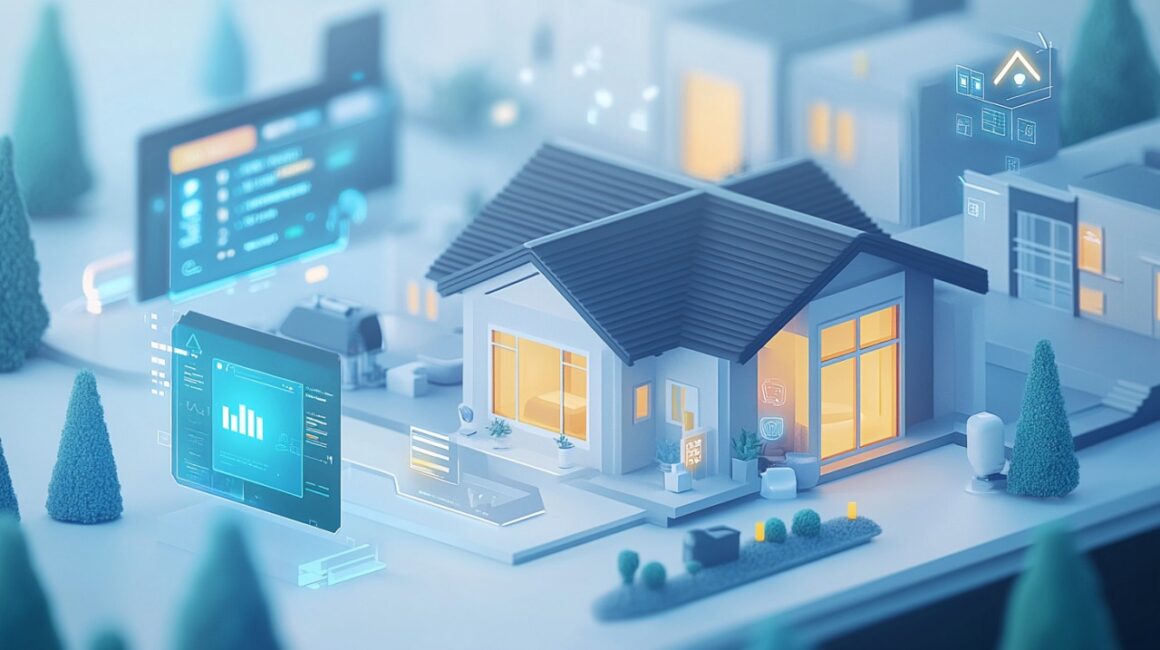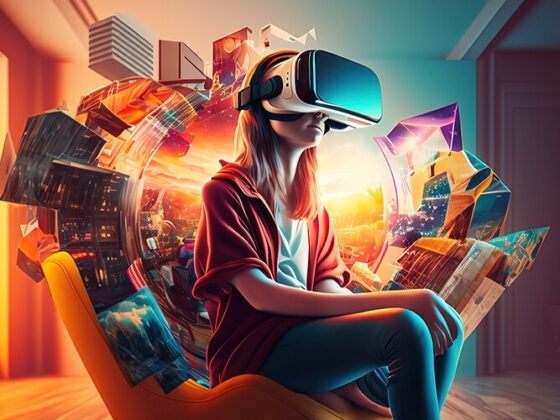In the rapidly evolving landscape of real estate, artificial intelligence is emerging as a transformative force, reshaping how homeowners and agents alike approach the selling process in 2025. Gone are the days of tedious paperwork and protracted negotiations, replaced instead by sophisticated algorithms and data-driven insights that streamline transactions.
Imagine a world where chatbots provide instant property evaluations and virtual reality tours showcase homes to potential buyers from anywhere on the globe. This technological revolution is not merely enhancing efficiency; it’s redefining the entire experience of buying and selling a home.
As we delve deeper into this new era, we’ll explore the myriad ways AI is not only simplifying complexities but also unleashing unprecedented opportunities for sellers to connect with their ideal buyers, making the once daunting process more intuitive and accessible than ever before.
AI-Powered Property Valuation: Accurate Pricing at Your Fingertips

In 2025, the real estate landscape has been transformed by AI-driven property valuation tools, offering home sellers unparalleled precision when determining property prices. Imagine having access to a sophisticated algorithm that analyzes a multitude of factors—ranging from market trends and neighborhood dynamics to property features and even economic indicators.
This technology doesn’t just spit out a number; it presents a nuanced compilation of data that reflects the true value of a home in real time. Sellers can now make informed decisions, adjusting strategies on the fly as they receive insights that were once the realm of seasoned appraisers.
Gone are the days of guesswork and outdated comparable sales—now, pricing a property is both an art and a science, all at the touch of a button. The result? A more efficient selling process that empowers homeowners and brings buyers closer to their ideal homes, as everyone navigates a marketplace where transparency and accuracy reign supreme.
Virtual Staging and Augmented Reality: Transforming Home Visuals
In 2025, the landscape of home selling is undergoing a radical transformation, thanks in large part to the advancements in virtual staging and augmented reality. Imagine stepping into a property that seems to come alive through visuals that transcend mere photos; living rooms adorned with chic, contemporary furniture, kitchens gleaming with state-of-the-art appliances—all rendered within an immersive, interactive framework.
Buyers can now visualize each space not just as it is, but as it could be, sparking their imagination and potential for personalization. This leap in technology allows sellers to showcase their homes in the best light, stripping away the clutter of reality to reveal spaces brimming with possibility.
Suddenly, a modest condo becomes a stylish retreat, and a dated house transforms into a modern masterpiece—not through renovation, but through the power of virtual reality. As we navigate this digital frontier, the synergy of art and technology invigorates the market, making home buying an exhilarating experience that feels both intimate and innovative.
Security and Fraud Detection: Ensuring Safer Transactions

In the rapidly evolving landscape of home selling in 2025, security and fraud detection have emerged as paramount concerns—especially as online transactions continue to proliferate. Advanced artificial intelligence systems are now capable of analyzing vast amounts of transactional data in real-time, identifying suspicious patterns that may indicate fraudulent activity.
For instance, these AI algorithms scrutinize buyer behavior and financial histories, flagging irregularities that would previously go unnoticed by human agents. Meanwhile, machine learning technologies enhance the efficacy of two-factor authentication processes, ensuring that only legitimate parties can complete a transaction.
As a result, prospective home sellers can engage in the market with heightened confidence, knowing that their investments are shielded by cutting-edge security measures that not only protect their assets but also create a seamless buying experience. The blend of innovative technology and user-centric design is redefining trust in real estate, enabling transactions that are not just faster, but also remarkably safer.
Conclusion
In conclusion, the integration of AI into the home selling process by 2025 marks a significant transformation in how transactions are conducted, making them more efficient, personalized, and accessible than ever before. With advanced algorithms streamlining pricing strategies, virtual reality enhancing property viewings, and data analytics providing insights into market trends, both sellers and buyers are empowered to make informed decisions.
As platforms like https://gordonbuyshomes.com/we-buy-houses-escondido-california/ demonstrate, the ability to leverage AI can simplify complex processes and connect sellers with buyers in meaningful ways. As we embrace these technological advancements, the future of real estate promises to be faster, smarter, and more client-focused, paving the way for a new era in home selling.


